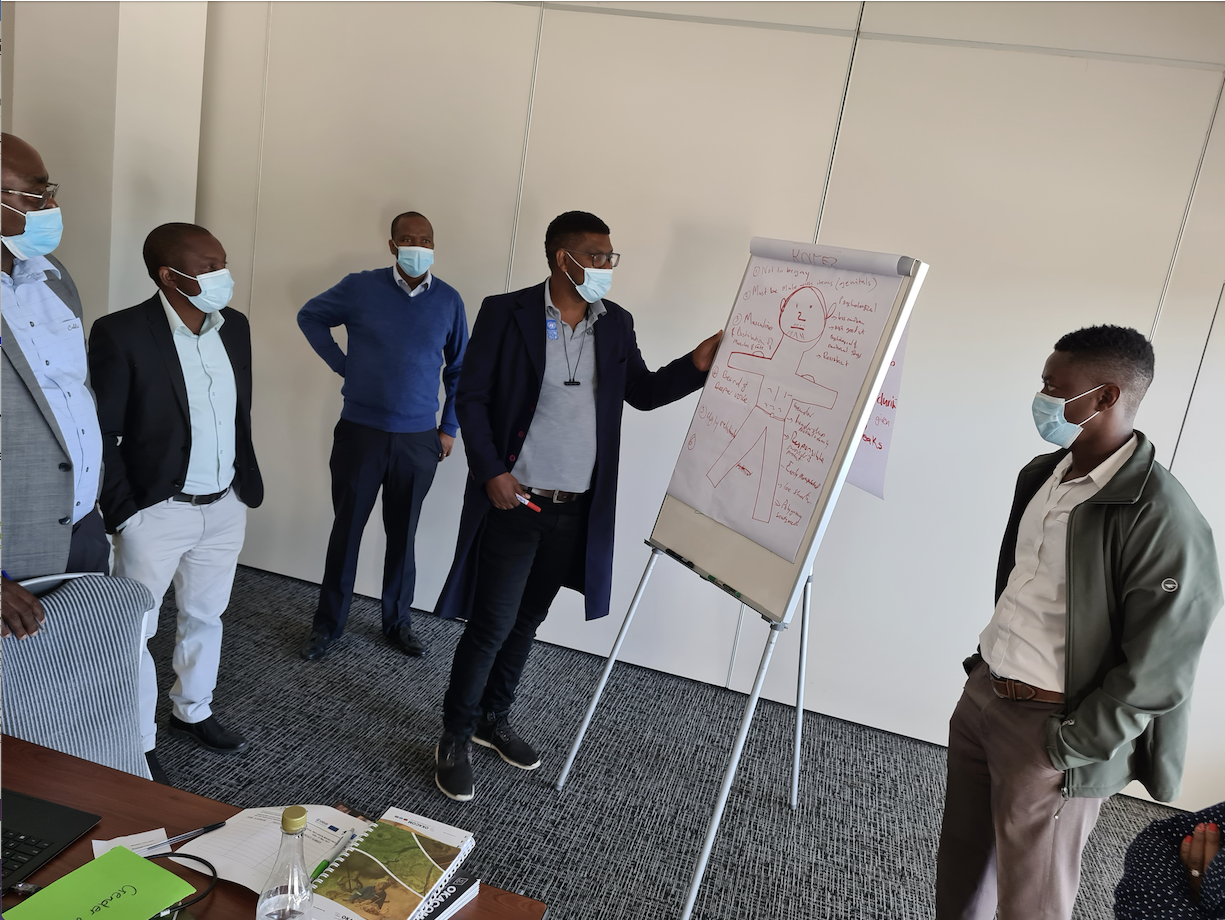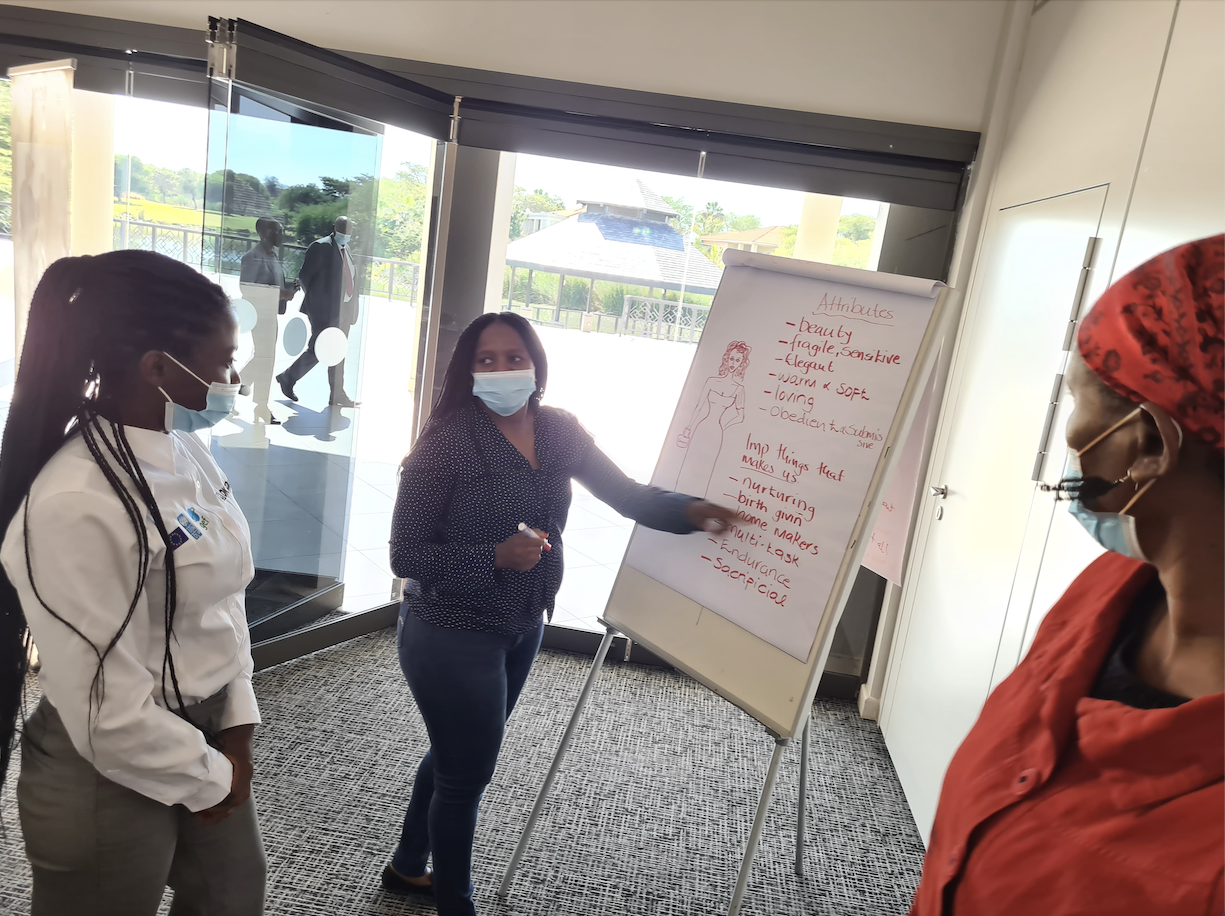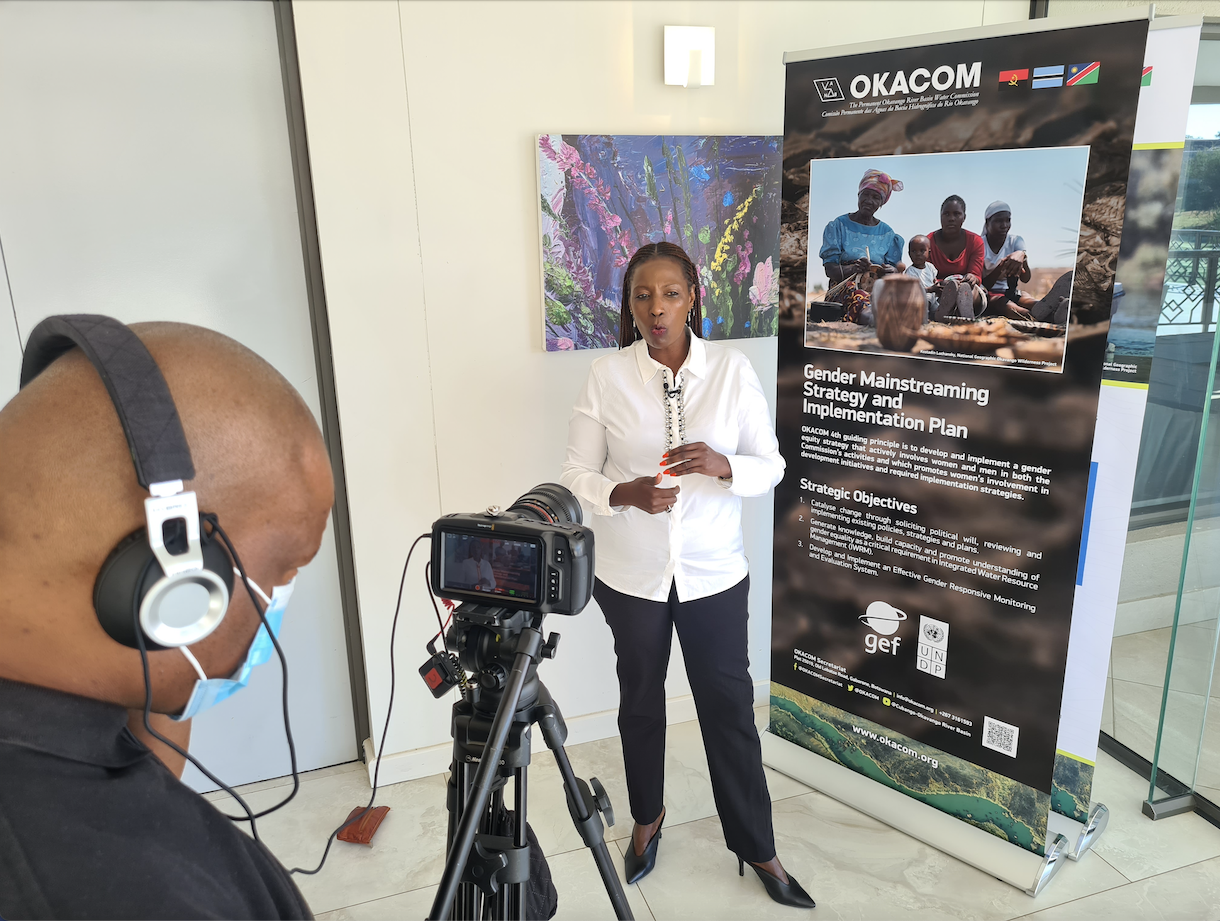- Home
- About Us
- Background
- Mandate
- Cubango Okavango River Basin
- Governance
- Strategy and Approach
- Member States
- Our Work
- Partners
- Climate Resilient Infrastructure Development Facility (CRIDF)
- European Union (EU)
- Southern African Development Community (SADC)
- Swedish International Development Cooperation Agency (SIDA)
- The World Bank (WB)
- United Nations Development Programme (UNDP)
- United States Agency For International Development (USAID)
- Resources
- News and Events
- Opportunities
- Contact Us
- FAQ's
- Connect With Us
- i
- t
- f

Gender and Social Inclusion Training Workshop for OKASEC
Thursday, May 13, 2021



The OKACOM Gender Mainstreaming Strategy provides a framework to advance the commitment to ensuring equitable and sustainable development and growth on matters relating to the conservation, development and utilisation of water resources in the Cubango-Okavango River Basin. Finalised in 2018, through technical and financial support from the United Kingdom, Department for International Development (DfID), the Deutsche Gesellschaft für Internationale Zusammenarbeit (GIZ) and the Programme on Transboundary Water Management at SADC Secretariat, the strategy offers key activities in implementing gender mainstreaming.
In May 2021, OKACOM undertook a two-day workshop held in Gaborone to discuss the theoretical aspects of Gender, Equity and Social Inclusion (GESI) and carry out practical exercises in designing projects which incorporate gender analyses and mainstreaming through the support of USAID Resilient Waters Programme and the Climate Resilient Infrastructure Development Facility (CRIDF). The workshop was attended by OKASEC staff, with the aim of enhancing the understanding of the Strategy, key terms and concepts of GESI and strengthening capacity to mainstream GESI into project preparation processes.
"The OKACOM Gender Strategy was developed through a very consultative process and since its adoption we have had to look for ways of implementing it, specifically the capacity building component. At this stage we are capacitating staff of the Secretariat and hopefully we will be able to do the same with Member States. The aim being to ensure we understand the principles of gender equality and that gender mainstreaming is effected within the Commission.” said Phera Ramoeli, OKACOM Executive Secretary during the opening of the workshop. The workshop was facilitated by the GESI advisors who offered demonstration, through participation and practical application, of OKACOM’s Gender Strategy and CRIDF’s GESI Toolkit. This approach was applied to projects in the CORB covering integrated water resource management, conservation, livelihoods a part of key thematic areas.
“We can now distinguish between gender equality, equity and social inclusion. It is not only about the number of women or men participating in programs, but it is the integration of gender principles to ensure that the downstream activities translate into tangible results for improving livelihoods” said Portia Segomalo, the EU OKACOM Programme Manager who was one of the workshop participants. The workshop was followed by an evaluation process and next steps include further capacity building for other OKACOM structures across the Member States. The OKACOM Gender Strategy has been published in English and Portuguese through the support of the UNDP GEF Project and is accessible on the website, with plans underway to disseminate physical copies to members states and at OKACOM Information Documentation Centres.
Thematic Areas & Activities
News
subscribe for news notification by email
Photo Credit: Kostatin Luchansky, National Geographic, Okavango Wilderness Project.
© [current-date:custom:Y] [site:name]

